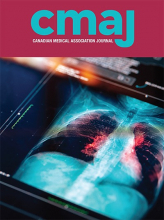In March, my husband and I got a cold, and we both ended up with a cough. He got over his cough, but I didn’t.
In July, I noticed that I wasn’t eating well. I tried to call my nurse practitioner, but the office was closed. I called the after-hours clinic and was told the cough was not an acute symptom and to call my nurse practitioner back to make an appointment.
When the office reopened in August, I was given an appointment for the end of November. I was going on a trip in October, and I explained that I wanted to get this sorted out before I left, so they booked an appointment for October.
Closer to my appointment, I wasn’t eating well and had heart palpitations. I also felt a hiccup or something in my chest. After the appointment, they ordered a chest x-ray. The nurse practitioner called the next day, told me I had fluid in my lungs, and gave me a prescription for some kind of cortisone and two inhalers, and arranged for another x-ray.
After the second x-ray, I was told nothing had changed. I had a CT scan and a few days later, the nurse practitioner called in the evening and said, “Sandy, you have stage four cancer.”
This was a big surprise, because I’m not a smoker, and I had always associated lung cancer with smoking and lifestyle. I don’t drink, and I don’t smoke. My husband and I are dairy farmers and are active people. It was devastating to hear the news over the phone. I was thinking, “This is basically a death sentence.”
I was referred to the cancer clinic and started the process of having CT scans, a biopsy, PET scans, and an MRI. The one good thing I recall about that whole process was that one nurse told me not to worry and to not read anything on the Internet. She told me how her father had been diagnosed with lung cancer five years ago, and he was fine. I hung on to that bit of encouragement.
By that time, I had lost 45 pounds. I was not eating because the cancer had metastasized around my stomach. They started radiation to shrink the lymph nodes in my abdomen. I completed five treatments before we knew exactly what kind of cancer it was.
I had a biopsy a week before Christmas, and it took a long time to finally get the diagnosis. My three adult kids knew I had a cough and had been bugging me to get it checked out. I didn’t know what to tell them as I didn’t know myself what was going on, other than that I had lung cancer. They were devastated when they found out. I also have three young grandsons, so when it came to Christmas, they made a rough day enjoyable. At that time, I wasn’t sure if it would be my last Christmas or not.
From the time I was told I had cancer to the time I got the biopsy results was 50 days. I don’t know whether that’s normal or not, but I found it very long. When my oncologist finally got the results, he said that, because of the cancer’s mutation, it was one of the easiest lung cancers to treat. I was elated.
I originally thought I would be going to the hospital and hooked up to IVs for chemo, but my oncologist told me the treatment was very simple. I was going to take one pill a day, and he said I would feel better within a week.
Because we are self-employed and we don’t have private health insurance, I had to apply to the Ontario government’s Trillium Fund to have the osimertinib paid for. It took 12 days to get approval. The pharmacy did the application. I initially thought I would pay for the drug in the meantime, but the pharmacy told me that the drug was $10 000 a month, around $300 a day, and I wouldn’t be reimbursed for anything I paid. While I was waiting the 12 days, I felt like I was being eaten from the inside out. I just wanted something to stop the cancer.
I felt better about 48 hours after the first dose. My eating got better quickly. It was amazing! I couldn’t believe it. Since I started on the osimertinib, I have felt great. I have a few minor symptoms, but I really do feel good.
My oncologist told me that, eventually, osimertinib will not work; the cancer will find a way around it. That was a little bit devastating to hear, but he was very encouraging. He said there were other medications we could try, which was very reassuring.
In Their Own Words provide extracts of interviews held between CMAJ staff and patients, families or clinicians. They are usually linked to an article appearing in the Practice section and are intended to provide complementary perspectives.
Footnotes
This article has not been peer reviewed.
This is an Open Access article distributed in accordance with the terms of the Creative Commons Attribution (CC BY-NC-ND 4.0) licence, which permits use, distribution and reproduction in any medium, provided that the original publication is properly cited, the use is noncommercial (i.e., research or educational use), and no modifications or adaptations are made. See: https://creativecommons.org/licenses/by-nc-nd/4.0/











